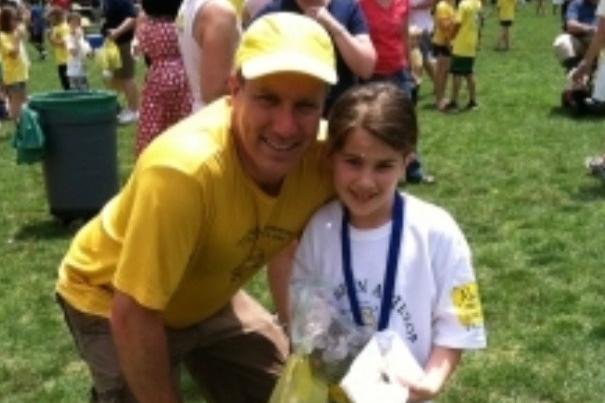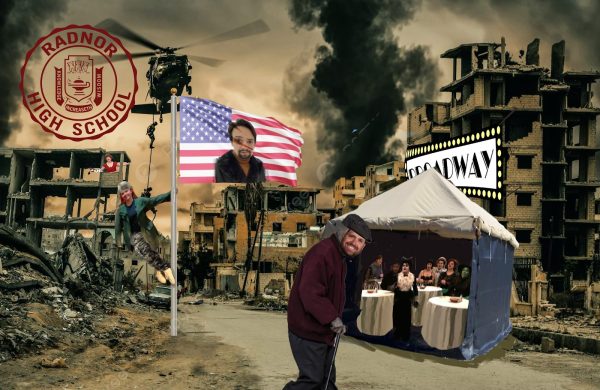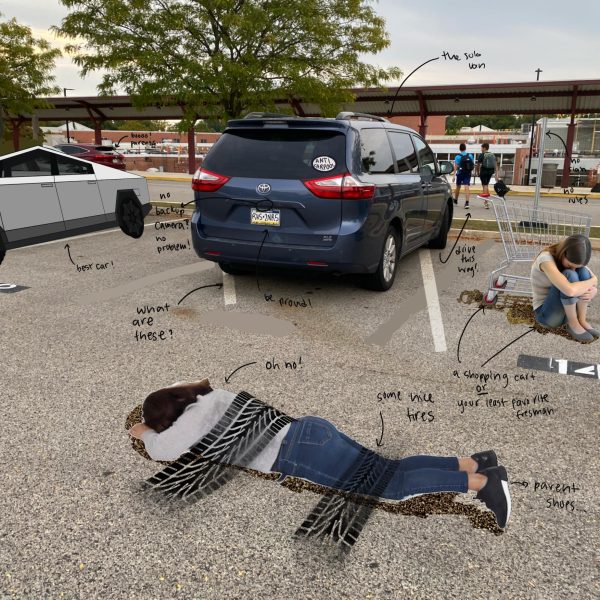Lemons to Lemonade
January 16, 2019
As we head into a new year and the challenges and joys that that brings, we need to focus on what’s important.
When I was diagnosed with childhood cancer for the second time, I began to contemplate the way that we talk about, or rather around, illness. Take the word “cancer.” It’s ugly, scary, even burdensome – so much so, that the instinct for both patients and non-patients alike is to attempts to come up with a positive spin.
Before I got cancer, I was a pessimist. My family used to joke about how in elementary school when someone asked me whether the glass was half full or empty, I was immediately replied with the first option. I simply could not comprehend how one could see the world in a positive way. How they could see a glass filled with their favorite drink when half was so obviously missing? I lived my life this way, preparing for and expecting the worst to happen at all times. But no matter how low my expectations were before fifth grade, no negative thoughts could have prepared me for the realities of having cancer again.
When I was diagnosed, I was utterly ambivalent. I could not recall much from my first time being sick, just faint memories of chemo and the scars that remained. All I knew, instinctively, was that I could not afford to be negative. My reality very abruptly shifted from living to surviving.
People use the term “inspiration” or a “warrior” or some other empty word to describe a survivor like me. It is no coincidence that cancer is often referred to as a “battle,” and adults tell you to “stay strong.” These phrases are a part of the culture of illness. There’s no doubt that they have good intentions, but in truth, I watched it happen. I didn’t consciously fight. I didn’t feel myself “fighting the battle.” My body was a vessel for the war being fought inside me – without my consent. The battle raging in me was contained, but I had little knowledge of who was going to win. And yet, my mind immediately began to put a positive spin on everything that came my way.
Suddenly, I found myself full of optimism. From the moment I was diagnosed, I lived with the notion that I would survive. Some friends inquire whether I cried when I found out, or if I thought that I was going to die. Again, I know that they don’t mean to offend, but I instinctually turn to the same answer: I never made a conscious decision to be positive – I just was. I had to be. Consumed by the smells of alcohol wipes, drips of saline, sterile whites, and loud beeps of the hospital, I did not worry. Maybe it was for my parents or my younger brothers for whom I wanted to appear strong. Or maybe, I simply couldn’t comprehend what was to come. But regardless, I turned my haircut into a spa day, and maintaining weight became an endless ice cream bar. And we laughed and told jokes as I went in for another scan, another surgery, another round of chemotherapy and radiation.
Now that I’m cancer-free, I realized my optimism was my method of protecting myself, my version of “survival-mode.” I guess, it made me appear stronger and more assured – for my friends, my family, and for myself. I had no control over what was happening to me, no input on my life or my body. But it was ultimately crucial to control the only thing I could — my attitude. When you are in an abysmal situation, you can’t afford to think negatively.
While positive thinking alone cannot cure cancer, attitude is critical to getting through the process and, eventually, growing as a person. The mantra “laughter is the best medicine” is no doubt a cliche, but it is one I learned to live by. Finding humor in the center of such acute difficulty may seem completely impossible, and you may not always believe it at the moment. However, the more I reframed my circumstances with humor and positivity, the more positive and willing I became to get better. Despite my circumstances, I could still appreciate the ways in which I was lucky. I had an amazing hospital nearby, a support system, insurance, amazing doctors, and many more things that I was fortunate to be provided. These are necessities many other families are unable to count on in their times of need. Instead of feeling sorry for myself or feeling guilty for having the resources I needed, I spearheaded a massive donation campaign for Alex’s Lemonade Stand, so that others might have some of the care and support I did. While I was at my worst, giving back to others helped me to feel as though I could make a difference. And now that I’m well, I still find immense comfort and strength in sharing my story with others. Sometimes, acknowledging pain and anxiety helps you grow in gentleness and compassion towards not only another person, but yourself. I discovered that this horrible disease could help me make a positive impact that could save other, less fortunate, children .
Cancer was hard, a bit of an understatement, and I still make a conscious effort to censor some moments in my mind, framing any negative thoughts in a more positive way. I do not accept that everything happens for a reason. Or that getting cancer was “worth it,” in order to learn any crucial life lessons. If feeling sorry for myself could’ve helped get rid of my cancer, I would have done it. But it did not, and it won’t for others. I cannot ask myself why I got cancer, or what good it did. I feel that there is no reason why. Nonetheless, my perspective on life has been positively impacted.
My medical journey is still not over. I have many complications that will last a lifetime, but I remain hopeful for the future. I see each doctor I visit as yet another test of my attitude and improvement. I’d like to think I appreciate life much more than I did before I got sick. I have internalized this optimism, and am now in a position to find the good side of everything, to have an optimistic outlook that is omnipresent and pervasive of every aspect of my life. It is all right to laugh when you have cancer. Maybe someone won’t understand or will respond with pity. But there are no rules for surviving cancer. Each of us makes them up as we go along.
With midterms just around the corner, it’s easy to begin feeling overwhelmed or negative. We let those obstacles hold us back, and it seems difficult to turn a situation around. I have learned that how we handle the biggest challenges in life can be so instructive for how we might face these seemingly overwhelming moments.
I chose to laugh in the face of cancer — to voice positivity as a show of strength in the face of the unknown. There will always be doubts and moments of despair, but I know now to let them come and go. They are just that. Moments. And those moments are an opportunity to take whatever life throws at you, one laugh at a time.







